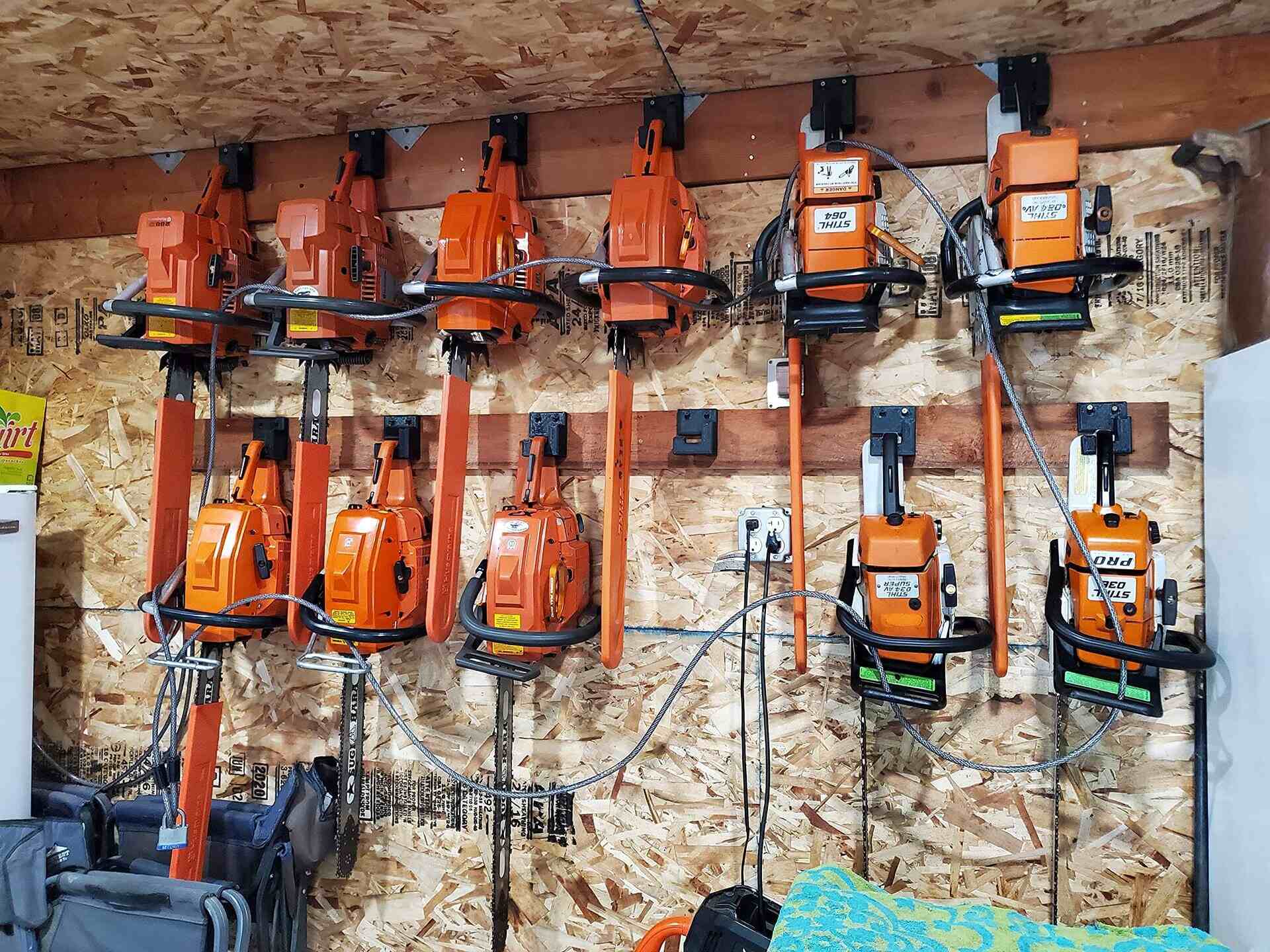

Articles
How To Store Chainsaws In Garage
Modified: September 2, 2024
Learn the best ways to store chainsaws in your garage with these informative articles. Keep your chainsaws safe and organized for easy access and maintenance.
(Many of the links in this article redirect to a specific reviewed product. Your purchase of these products through affiliate links helps to generate commission for Storables.com, at no extra cost. Learn more)
Introduction
Welcome to our comprehensive guide on how to store chainsaws in a garage. Chainsaws are powerful and versatile tools, but proper storage is essential to maintain their functionality and lifespan. Whether you are a seasoned arborist or a homeowner who occasionally uses a chainsaw for maintenance around the property, knowing how to store your chainsaw correctly will ensure it stays in optimal condition and is ready for use whenever you need it.
In this article, we will walk you through a series of steps and safety considerations that will help you store your chainsaw properly in your garage. From clearing garage space to regular inspection and maintenance, we will cover everything you need to know to protect your chainsaw investment.
Safety should always be your top priority when dealing with chainsaws. Before storing your chainsaw, make sure to review the manufacturer’s safety guidelines and familiarize yourself with the proper handling and operation of the tool. Always use appropriate safety gear, such as gloves, safety goggles, and ear protection, when operating or handling a chainsaw.
Now, let’s dive deeper into the details of storing your chainsaw in the garage.
Key Takeaways:
- Proper storage of chainsaws in the garage requires prioritizing safety, clearing space, regular cleaning and maintenance, and ensuring proper ventilation. Following these steps will protect your investment and ensure your chainsaw is ready for use when needed.
- Securing your chainsaw, protecting it from dust and moisture, and performing regular inspection and maintenance are essential for maintaining its performance and longevity. By following these guidelines, you can ensure your chainsaw remains in optimal condition for years to come.
Read more: How To Store Chainsaw
Safety Considerations
When storing your chainsaw in the garage, it’s crucial to prioritize safety to prevent accidents and ensure the well-being of yourself and others. Here are some safety considerations to keep in mind:
- Disconnect the spark plug: Before storing your chainsaw, always disconnect the spark plug to prevent any accidental start-ups. This step ensures that the chainsaw won’t start inadvertently, reducing the risk of injury.
- Empty the fuel tank: Before storing your chainsaw for an extended period, it’s important to empty the fuel tank. Emptying the fuel tank prevents the fuel from deteriorating and causing damage to the engine. Dispose of the fuel properly according to local regulations.
- Remove the chain and bar: To minimize the risk of accidental cuts and damage, remove the chain and bar from the chainsaw before storing it. This step also allows for easier cleaning and maintenance, as you can access all parts of the chainsaw more effectively.
- Check for loose or damaged parts: Before storing the chainsaw, inspect it thoroughly for any loose or damaged parts. Tighten any loose screws or bolts and replace any damaged components to ensure safe operation when you next use the chainsaw.
- Store in a secure location: Choose a secure and inaccessible location in your garage to store your chainsaw. This will prevent unauthorized access and reduce the risk of accidents, especially if you have young children or pets at home.
- Keep out of reach: Store your chainsaw out of reach of children and inexperienced individuals. Consider using a lockable storage cabinet or placing the chainsaw in a storage shed to ensure it is not easily accessible to unauthorized users.
- Label hazardous materials: If you are storing any hazardous materials such as chainsaw oil or fuel, make sure to label them properly and store them in a designated area away from any potential ignition sources to prevent accidents or fires.
- Regularly inspect cords and cables: If your chainsaw has an electric cord or cable, regularly inspect it for any signs of wear or damage. Replace any frayed or damaged cords to prevent electrical hazards.
By following these safety considerations, you can minimize the risk of accidents and ensure that your chainsaw is stored in a safe and secure manner in your garage.
Clearing Garage Space
Before you can store your chainsaw in the garage, it’s essential to clear adequate space to ensure easy access and prevent any damage to the tool. Here are some steps to help you clear the garage space:
- Remove clutter: Start by decluttering your garage and removing any unnecessary items. This will create space and make it easier for you to organize and store your chainsaw.
- Create a designated area: Designate a specific area in your garage for chainsaw storage. Ideally, this area should be away from any potential hazards, such as flammable materials or high traffic areas.
- Organize your tools: If you have other tools or equipment in the garage, organize them in separate sections or storage cabinets. This will help prevent any accidental damage to the chainsaw and make it easier to locate your tools when needed.
- Consider wall storage: Utilize wall space in your garage by installing hooks or racks to hang the chainsaw. This will keep it off the floor, protect it from potential damage, and free up valuable floor space.
- Use storage containers: If you have multiple chainsaws or accessories, consider using storage containers or bins to keep them organized. Label the containers accordingly for easy identification.
- Clear obstructions: Ensure that there are no obstructions or obstacles in the designated area for chainsaw storage. This will allow for easy access and prevent any accidents or tripping hazards.
By clearing the garage space and organizing the area specifically for chainsaw storage, you can create a safe, easily accessible, and well-organized space to keep your chainsaw.
Cleaning and Maintenance
Proper cleaning and maintenance of your chainsaw are vital to ensure its longevity and performance. Here are some steps to help you clean and maintain your chainsaw:
- Remove debris: After each use, carefully remove any debris, such as wood chips or sawdust, from the chainsaw. Use a brush or compressed air to clean hard-to-reach areas.
- Inspect the chain: Regularly inspect the chain for any signs of damage, such as dull or broken teeth. Sharpen or replace the chain as necessary to ensure efficient cutting and reduce the risk of accidents.
- Check the air filter: The air filter prevents dust and debris from entering the engine. Clean or replace the air filter regularly to maintain optimal airflow and engine performance.
- Inspect the spark plug: Check the spark plug for any signs of damage or fouling. Clean or replace the spark plug as needed to ensure proper ignition and smooth operation.
- Inspect the fuel system: If your chainsaw has a fuel system, regularly inspect it for any leaks or damage. Replace any damaged components and ensure that the fuel lines are securely connected.
- Grease the sprocket: Lubricate the sprocket regularly with chainsaw lubricant to reduce friction and ensure smooth chain movement.
- Check the chain brake: Test the chain brake to ensure it engages and disengages properly. If you notice any issues, have it checked and repaired by a professional before storing the chainsaw.
- Inspect the bar: Check the bar for any signs of wear or damage, such as warping or cracks. Replace the bar if necessary to maintain safe cutting operations.
- Clean the exterior: Wipe down the exterior of the chainsaw with a clean cloth to remove any dirt, dust, or oil residue. This will help keep the chainsaw in good condition and prevent any buildup that may affect its performance.
By incorporating these cleaning and maintenance practices into your routine, you can ensure that your chainsaw remains in optimal condition and ready for use whenever you need it.
Lubricating the Chainsaw
Proper lubrication is essential for the smooth operation and longevity of your chainsaw. Lubricating the chainsaw helps reduce friction, protect the cutting components, and extend the life of the tool. Here are the steps to effectively lubricate your chainsaw:
- Select the right lubricant: Choose a high-quality chainsaw bar and chain lubricant recommended by the manufacturer. Using the correct lubricant ensures optimal performance and protection for your chainsaw.
- Clean the guide bar: Before lubricating, clean the guide bar using a brush or cloth to remove any debris or sawdust. This step ensures that the lubricant is evenly distributed and prevents clogging.
- Apply the lubricant: Turn the chainsaw upside down to access the guide bar. Start by applying a small amount of lubricant along the entire length of the guide bar. This will help ensure even distribution.
- Operate the chainsaw: Engage the chainsaw and run it for a few moments to allow the lubricant to spread evenly over the guide bar. This will ensure that the lubricant reaches all the necessary components.
- Check the oil level: If your chainsaw has an automatic oiling system, regularly check the oil level to ensure it is sufficient. Refill the oil reservoir as needed to maintain proper lubrication during use.
- Monitor oil usage: Pay attention to the oil consumption rate of your chainsaw. If you notice excessive oil consumption, it may indicate a problem with the automatic oiling system or a leak that needs to be addressed.
- Store the chainsaw properly: When storing your chainsaw, apply a light coat of lubricant to the guide bar to prevent rust and corrosion. This will protect the chainsaw during periods of inactivity.
- Regular maintenance: Make lubrication part of your regular chainsaw maintenance routine. Follow the manufacturer’s recommendations for lubrication frequency and ensure that the chainsaw remains properly lubricated for optimal performance.
By following these steps, you can effectively lubricate your chainsaw, ensuring smooth operation and minimizing the risk of premature wear or damage to the cutting components.
To store chainsaws in the garage, make sure to clean the chainsaw thoroughly before storage to prevent corrosion. Store in a dry, well-ventilated area and consider using a cover to protect it from dust and debris.
Read more: How To Tighten Ryobi Chainsaw Chain
Ensuring Proper Ventilation
Proper ventilation is crucial when storing a chainsaw in the garage. Good ventilation helps prevent the buildup of fumes and moisture, which can damage the chainsaw and affect its performance. Here are some steps to ensure proper ventilation:
- Choose a well-ventilated area: Select a storage space in your garage that has adequate ventilation. Avoid storing the chainsaw in enclosed or unventilated areas to prevent the accumulation of harmful fumes.
- Avoid storing near flammable materials: Keep the chainsaw away from any flammable materials or substances, such as gasoline, propane tanks, or chemicals. Proper ventilation reduces the risk of ignition and potential accidents.
- Allow for air circulation: Ensure that there is enough space around the chainsaw for air to circulate freely. Avoid tightly packing the storage area to allow proper airflow and prevent the buildup of moisture.
- Use a dehumidifier: If your garage tends to have high humidity levels, consider using a dehumidifier to control the moisture. Excessive moisture can lead to corrosion and damage to the chainsaw.
- Monitor temperature conditions: Avoid storing the chainsaw in extreme temperature conditions, such as freezing cold or excessive heat. Fluctuations in temperature can affect the performance and longevity of the chainsaw.
- Inspect for condensation: Regularly check for any signs of condensation on the chainsaw or its components. Wipe away any moisture to prevent rust and damage.
- Check ventilation systems: If your garage has ventilation systems, such as fans or vents, ensure that they are functioning correctly. Clean or replace filters as needed to maintain proper airflow.
- Store in a breathable cover: If you are using a cover or case to store the chainsaw, make sure it is made of breathable material. This will allow air circulation and prevent the buildup of moisture.
By ensuring proper ventilation during chainsaw storage, you can protect the tool from damage caused by fumes, moisture, and other environmental factors, allowing it to maintain its performance and functionality over time.
Proper Storage Position
The proper storage position for your chainsaw is essential to maintain its integrity and prevent damage. Here are some guidelines to follow when storing your chainsaw:
- Store in an upright position: It is recommended to store the chainsaw in an upright position rather than laying it on its side. This helps prevent oil leakage and ensures proper distribution of lubricant within the chainsaw.
- Use a chainsaw scabbard or case: Invest in a chainsaw scabbard or case for storage. These protective covers provide support to the chainsaw and keep it in an upright position, minimizing the risk of damage to the bar, chain, or other components.
- Avoid prolonged pressure on the chain: When storing the chainsaw, avoid placing objects or heavy items on top of the chain. Prolonged pressure on the chain can cause it to lose tension or bend, affecting its performance when you use the chainsaw next.
- Secure the chainsaw: If you have wall-mounted hooks or a designated storage area, make sure to secure the chainsaw properly. This prevents it from accidentally falling or getting knocked over, reducing the risk of damage.
- Protect the guide bar: When storing the chainsaw, protect the guide bar by placing a cover or sheath over it. This helps prevent accidental contact with the sharp bar, ensuring your safety and preserving the condition of the bar.
- Choose a cool and dry location: Select a storage location that is cool, dry, and away from direct sunlight. Exposure to excessive heat or prolonged moisture can damage the chainsaw’s components, compromising its performance and lifespan.
- Avoid hanging by the fuel cap: Do not hang the chainsaw by its fuel cap or handle. Hanging it in this way can put excessive stress on these areas and potentially cause damage or breakage.
- Follow manufacturer recommendations: Always refer to the manufacturer’s guidelines and recommendations for proper storage position. Different chainsaw models may have specific storage requirements, so it’s important to follow their instructions for optimal storage.
By storing your chainsaw in the proper position, you can minimize the risk of damage, maintain the integrity of the components, and ensure the chainsaw is ready for use whenever you need it.
Securing the Chainsaw
Properly securing your chainsaw during storage is crucial to prevent accidents and damage. Here are some steps you can take to ensure the chainsaw is securely stored:
- Use a lockable storage cabinet: If you have the space and resources, consider storing your chainsaw in a lockable storage cabinet. This provides an extra level of security and prevents unauthorized access.
- Install wall-mounted hooks: Wall-mounted hooks are a convenient way to secure your chainsaw. Hang the chainsaw on the hooks, ensuring that it is stable and cannot easily be knocked off.
- Use chain locks or padlocks: For added security, you can use chain locks or padlocks to secure the chainsaw to a fixed object or to the wall-mounted hooks. This prevents it from being easily removed or stolen.
- Store chainsaw accessories separately: If you have chainsaw accessories, such as extra chains or bars, store them separately and securely. This prevents them from being misplaced or damaged and ensures they are readily available when needed.
- Keep keys and locks in a safe place: If you use a lockable storage cabinet or padlocks, make sure to keep the keys in a safe place and away from the reach of children or unauthorized persons.
- Avoid storing with other tools: It’s best to store the chainsaw separately from other tools to prevent accidental damage or entanglement. This also makes it easier to access the chainsaw when needed.
- Ensure proper placement: When placing the chainsaw in a storage cabinet or hanging it on wall-mounted hooks, make sure it is positioned securely and will not easily fall or be knocked over.
- Check security periodically: Regularly inspect the security mechanisms you have in place to ensure they are still sturdy and functioning properly. Replace any worn out or damaged locks or chains.
- Don’t advertise ownership: Avoid displaying your chainsaw or its storage location in a conspicuous manner. This can attract unwanted attention and increase the risk of theft.
- Follow local regulations: Be aware of any local regulations or guidelines regarding the storage and security of chainsaws. Some areas may have specific requirements that you need to comply with.
By taking the necessary steps to secure your chainsaw, you can have peace of mind knowing that it is protected from theft and accidents while in storage.
Protecting from Dust and Moisture
Protecting your chainsaw from dust and moisture is essential to maintain its performance and prevent damage. Dust can clog the air filter and other components, while moisture can cause corrosion and rust. Here are some steps to protect your chainsaw from dust and moisture:
- Clean the chainsaw before storage: Before storing your chainsaw, clean it thoroughly to remove any dust or debris. Use a brush or compressed air to clean hard-to-reach areas and ensure that the chainsaw is free from any dirt or sawdust.
- Apply a corrosion inhibitor: Spray a thin coat of corrosion inhibitor or rust preventative on the chainsaw’s metal surfaces. This adds a protective layer and helps prevent rust formation during storage.
- Store in a dry location: Choose a dry location in your garage for chainsaw storage. Avoid areas that are prone to moisture, such as near windows or leaky pipes. Moisture can promote rust and corrosion, negatively impacting the chainsaw’s performance.
- Use a breathable cover: If you’re using a cover to protect the chainsaw, make sure it’s made of breathable material. This allows air to circulate and prevents the buildup of moisture and condensation. Avoid using plastic or non-breathable covers, as they can trap moisture and lead to rust formation.
- Avoid exposure to direct sunlight: Prolonged exposure to direct sunlight can cause the chainsaw’s materials to degrade and fade. Store the chainsaw in a shaded area or use a cover to protect it from sunlight when not in use.
- Check for leaks: Regularly inspect your chainsaw for any signs of leaks, particularly from the fuel and oil tanks. Address any leaks promptly by repairing or replacing the affected parts to prevent fuel or oil from coming into contact with the chainsaw and causing damage.
- Keep the chainsaw elevated: Store the chainsaw on a shelf or raised surface to keep it off the ground. This helps prevent moisture from pooling around the chainsaw and causing rust or corrosion.
- Avoid storing near water sources: Keep the chainsaw away from any water sources or areas prone to leaks, such as sinks or pipes. Water exposure can quickly lead to damage and corrosion.
- Regularly inspect and clean the storage area: Periodically check the storage area for any signs of moisture or dust buildup. Remove any accumulated dust or debris to maintain a clean and dry environment for the chainsaw.
- Perform regular maintenance: Regularly maintain and service your chainsaw according to the manufacturer’s recommendations. This includes cleaning, lubricating, and inspecting the chainsaw to ensure its optimal performance and longevity.
By following these steps to protect your chainsaw from dust and moisture, you can keep it in excellent condition and extend its lifespan.
Read more: Who Makes Ryobi Chainsaws
Regular Inspection and Maintenance
Regular inspection and maintenance are crucial for keeping your chainsaw in optimal working condition. By performing routine checks and addressing any issues promptly, you can ensure the safety, performance, and longevity of your chainsaw. Here’s a guide to regular inspection and maintenance:
- Inspect the chainsaw before each use: Before using your chainsaw, visually inspect it for any visible damage, loose parts, or worn-out components. Check the chain tension, guide bar, and safety features to ensure everything is in proper working order.
- Check and sharpen the chain: Regularly inspect the chain for any dull or damaged teeth. Use a file or chainsaw sharpener to sharpen the chain as needed. A sharp chain ensures efficient cutting and reduces the risk of kickback.
- Inspect and clean the air filter: The air filter prevents debris and dust from entering the engine. Regularly remove, clean, and inspect the air filter. Replace it if it’s damaged or excessively dirty to maintain optimal airflow and engine performance.
- Inspect the spark plug: Check the spark plug for signs of wear, fouling, or corrosion. Clean or replace the spark plug as necessary to ensure proper ignition and smooth operation.
- Check the fuel system: If your chainsaw has a fuel system, inspect it for any leaks, cracks, or damaged components. Replace any faulty parts and ensure the fuel lines are securely connected. Proper fuel system maintenance is crucial for optimal performance.
- Lubricate the chainsaw components: Regularly lubricate the guide bar, sprocket, and other moving parts of the chainsaw. Lubrication reduces friction, minimizes wear, and ensures smooth operation. Use a high-quality chainsaw lubricant recommended by the manufacturer.
- Inspect the chain brake: Test the chain brake functionality to ensure it engages and disengages correctly. A properly functioning chain brake is crucial for your safety during operation.
- Check for loose or damaged parts: Regularly inspect all fasteners, screws, and bolts to ensure they are tightened securely. Replace any damaged or missing parts promptly to maintain the integrity and safety of the chainsaw.
- Clean the exterior: After each use, wipe down the chainsaw’s exterior with a clean cloth to remove any dirt, sawdust, or oil residue. Keeping the chainsaw clean not only improves its appearance but also helps identify any potential issues.
- Follow the manufacturer’s maintenance schedule: Consult the manufacturer’s manual for specific maintenance guidelines and recommended intervals for servicing your chainsaw. Adhering to the schedule ensures that you address maintenance tasks at the appropriate times.
Regularly inspecting and maintaining your chainsaw will help identify and address any potential issues before they escalate. It will also contribute to the optimal performance, longevity, and safety of your chainsaw, enabling you to use it with confidence for years to come.
Now that you’ve mastered storing chainsaws in your garage, why stop there? Enhancing your overall garage space can also add tremendous value and efficiency to your home. Discover clever and unexpected garage organization ideas that transform clutter into a well-arranged and functional area. From simple tweaks to comprehensive overhauls, these strategies will help you maximize every inch of your garage, making it easier to find what you need, when you need it. Ready to turn your garage into a model of organization? Check out our treasure of smart tips and tricks!
Frequently Asked Questions about How To Store Chainsaws In Garage
Was this page helpful?
At Storables.com, we guarantee accurate and reliable information. Our content, validated by Expert Board Contributors, is crafted following stringent Editorial Policies. We're committed to providing you with well-researched, expert-backed insights for all your informational needs.
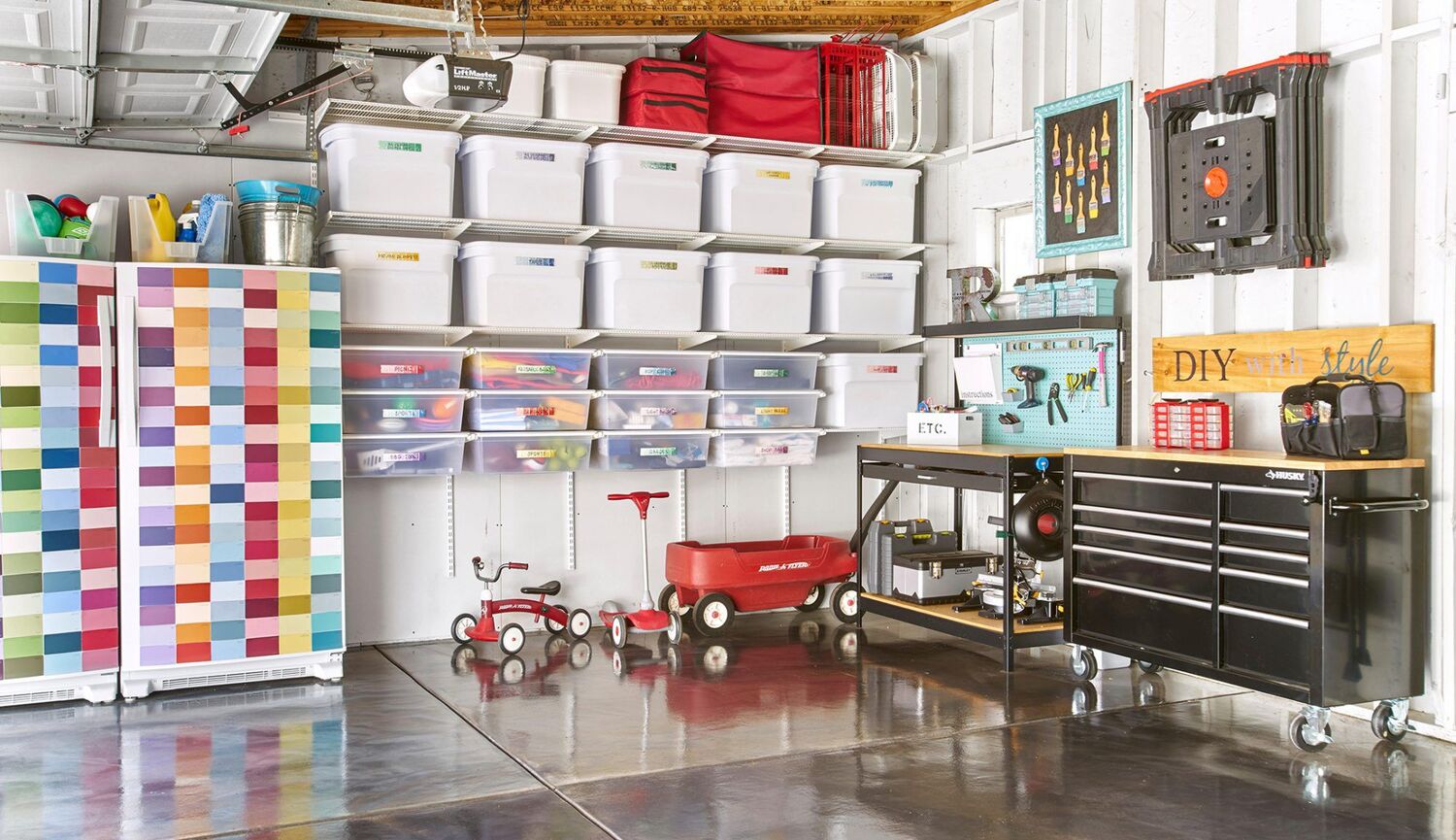
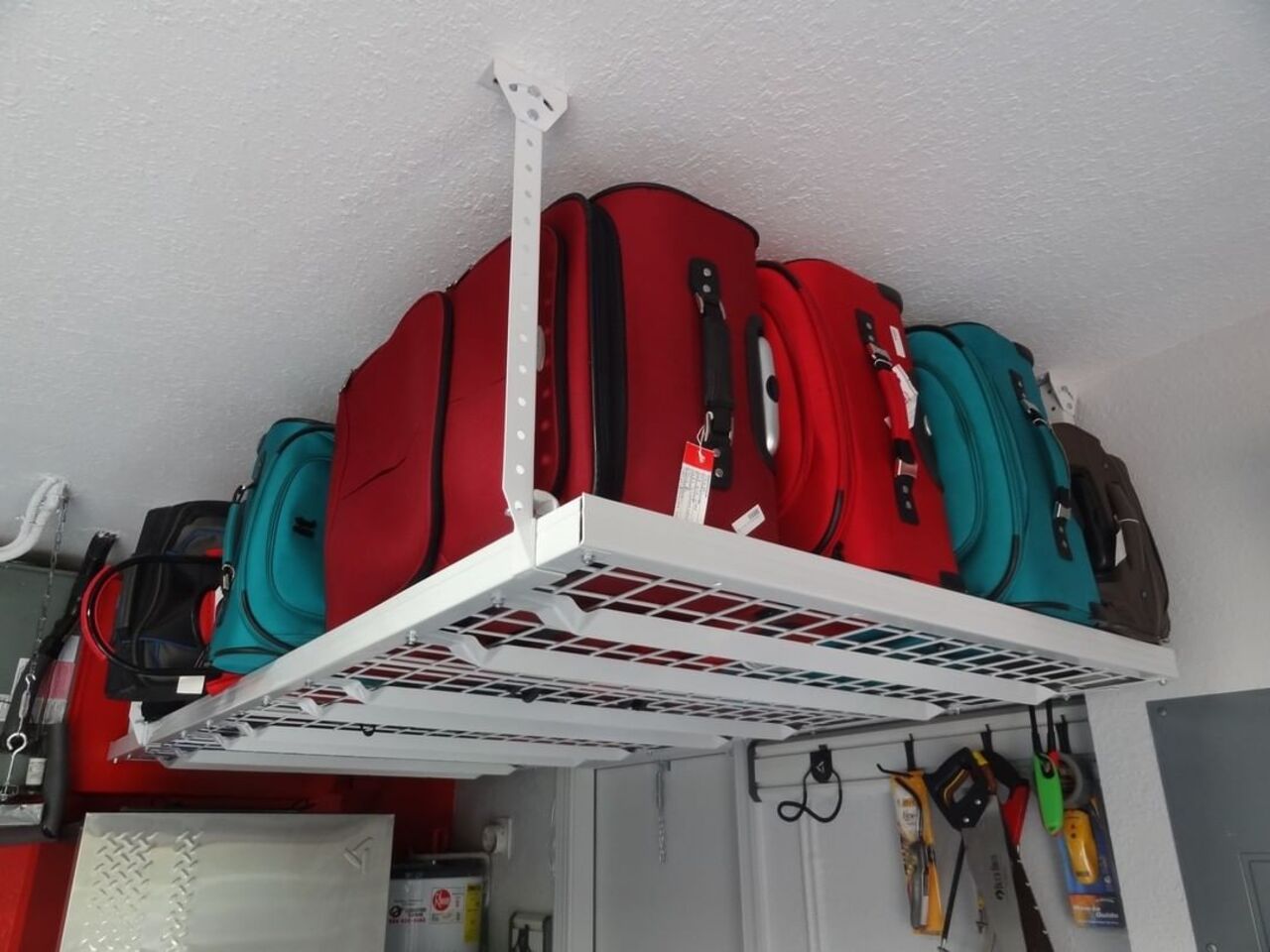



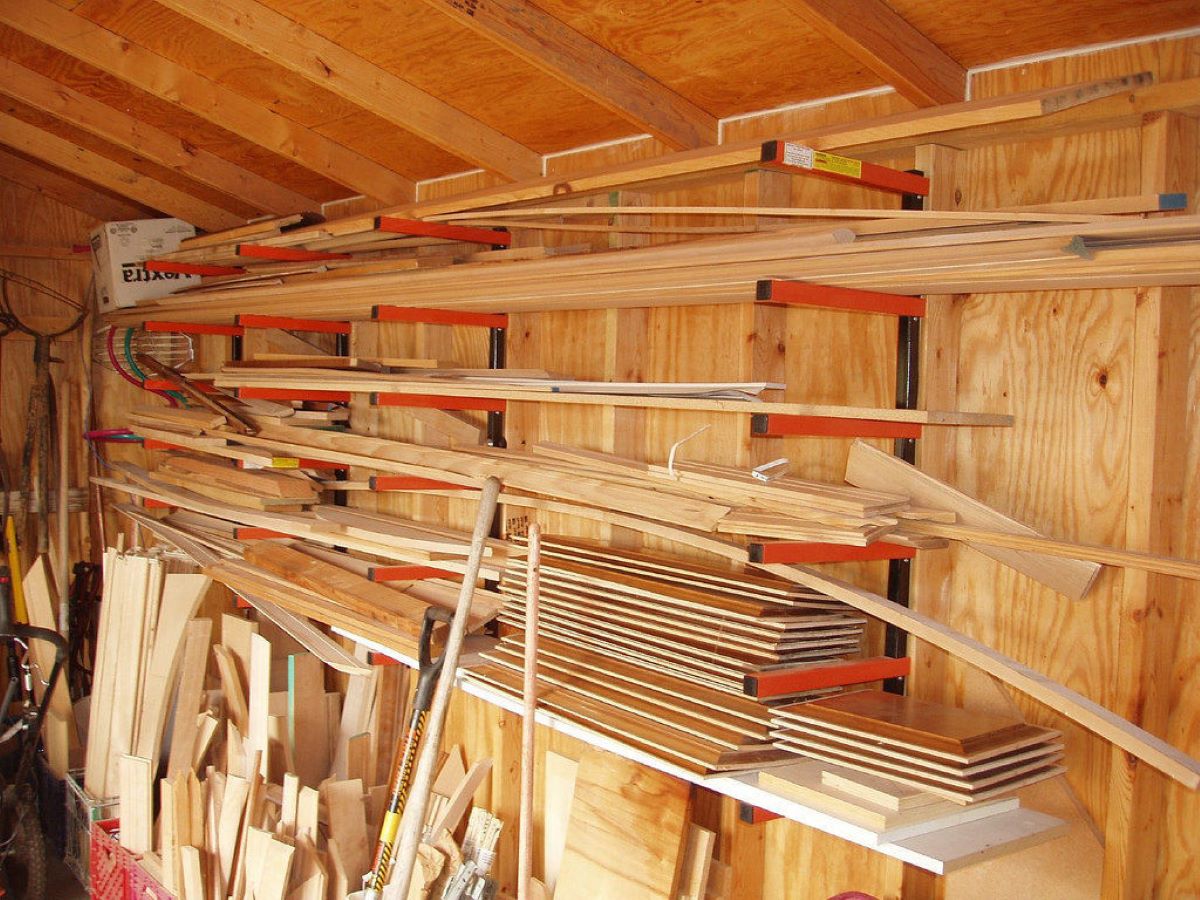
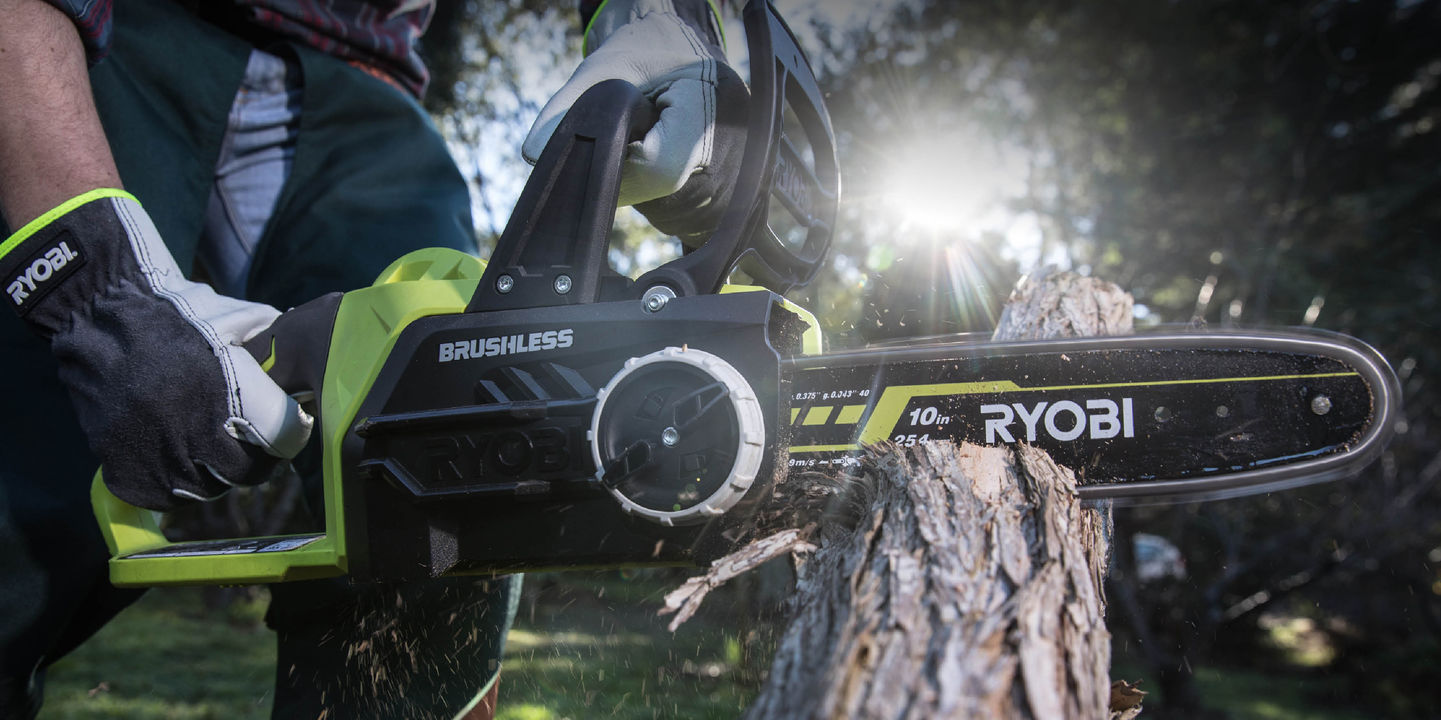




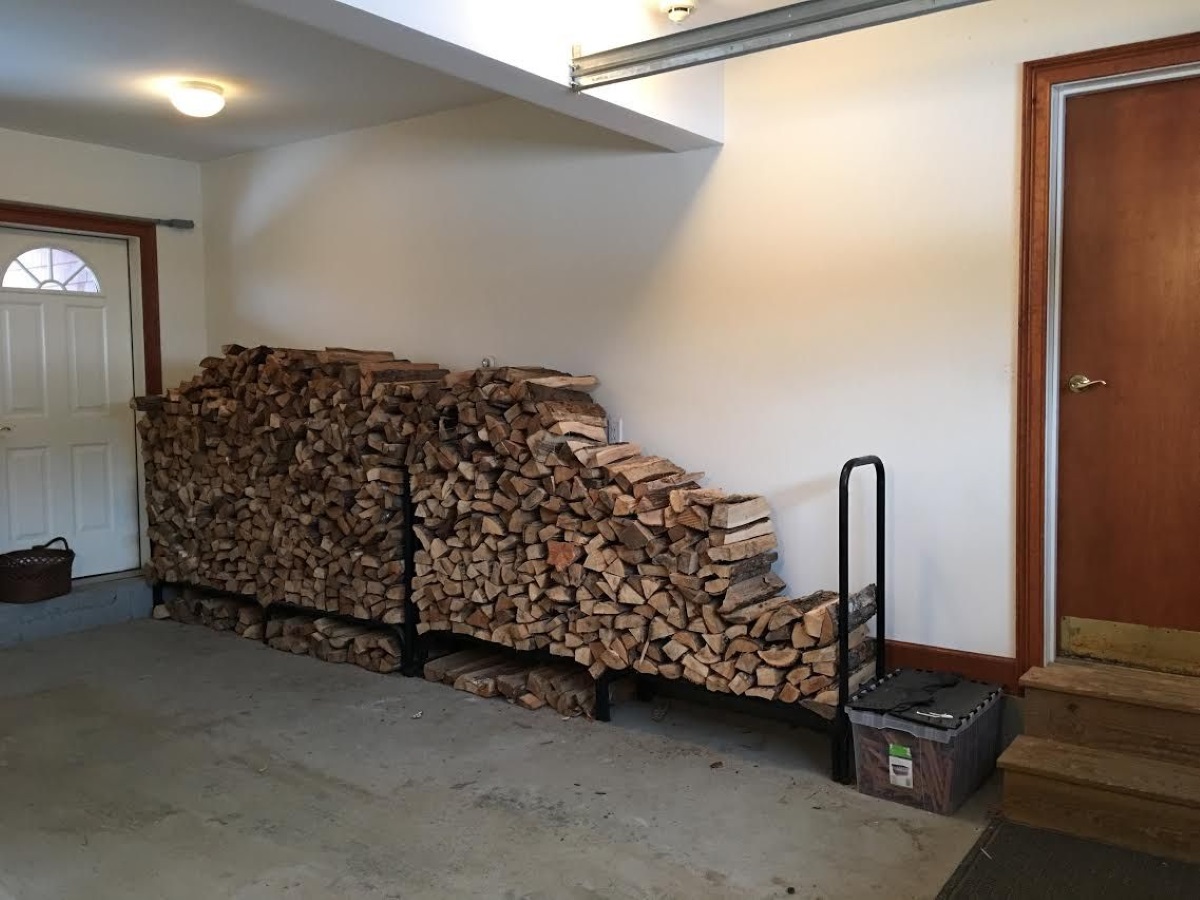
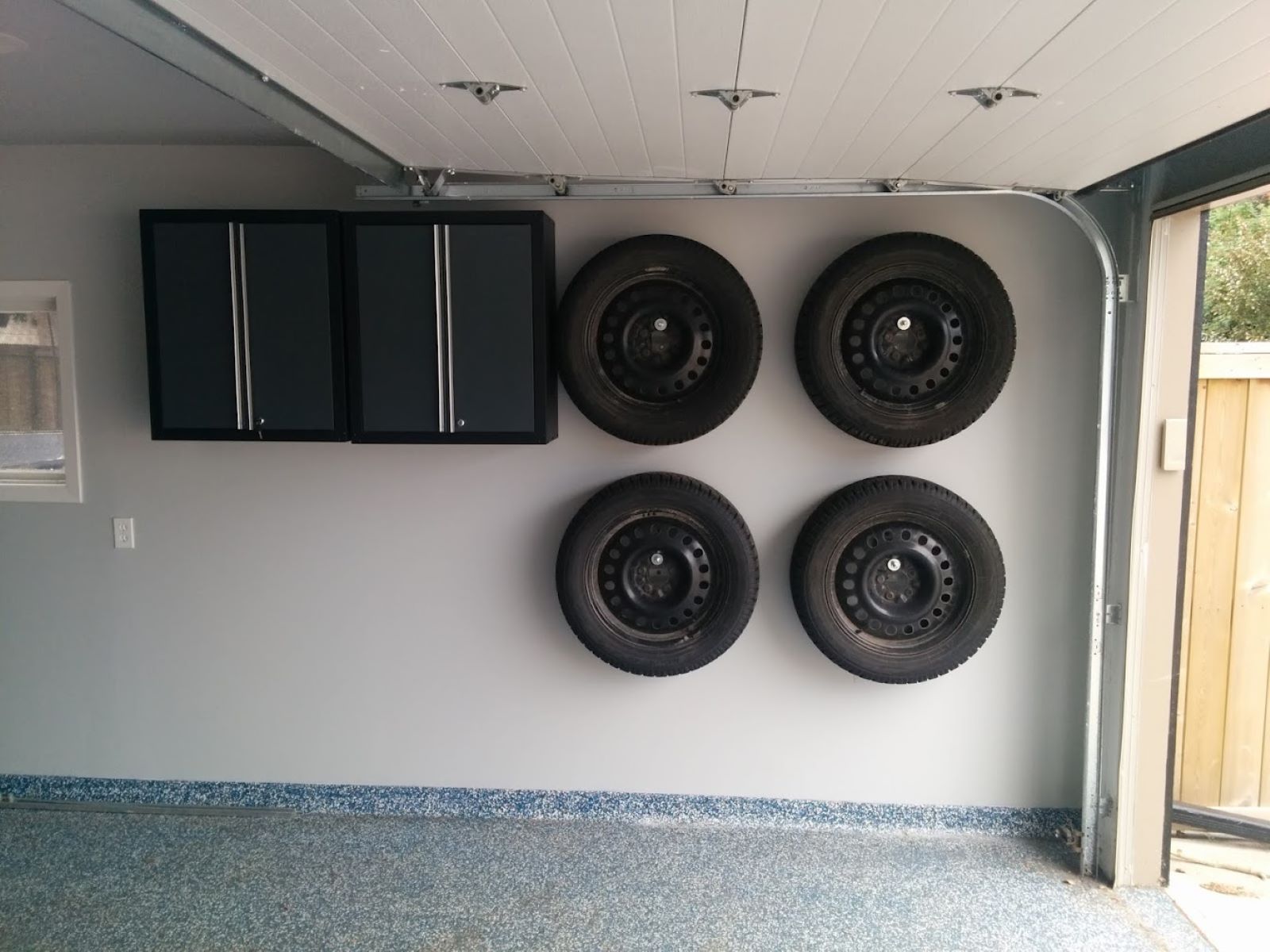

0 thoughts on “How To Store Chainsaws In Garage”